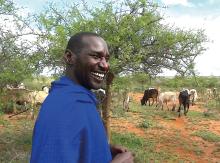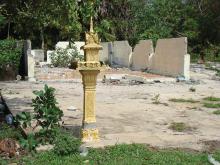Land Library
Welcome to the Land Portal Library. Explore our vast collection of open-access resources (over 74,000) including reports, journal articles, research papers, peer-reviewed publications, legal documents, videos and much more.
/ library resources
Showing items 1 through 9 of 131.Desde el reconocimiento de la existencia del desplazamiento forzado, el Estado ha ampliado y fortalecido la protección para los derechos de las víctimas. No obstante, las vulnerabilidades asociadas a la situación de desplazamiento se han agudizado.
Este artículo trata de las respuestas mediáticas a la crisis actual en la Costa Caribe de Nicaragua y los retrocesos a las luchas regionales por la autonomía y los derechos a la tierra.
Forests at the tropical Valley of the Apurimac and Ene rivers (VRAE), the second coca-growing region of Peru, are public common resources and nevertheless privately managed mainly by coca farmers, without effective State control of such use.
It is widely accepted among economists and policy-makers that secure and well-defined land property rights are integral to poverty alleviation and economic prosperity. But how do legal systems, land tenure and economic development really relate to one another?
Access to land is key to achieving food security, poverty alleviation, social equity and environmental protection. A brief insight in land governance-related principles and policies of the German development assistance.
Following the end of apartheid, South Africa’s government set itself ambitious goals with a planned land reform. However, there have since been barely any changes in the country’s agricultural structure, and the positive impacts that were hoped for on rural livelihoods have hardly materialised.
The year 2016 marks 15 years since the new wave land reforms became operational in Tanzania. Despite its ambitious goals – encouraging land registration and titling, and empowering women and other vulnerable groups – the results are disillusioning.
The land reform process in Cambodia is full of examples of injustice and human rights violations. Promises to improve the situation of the landless and land-poor citizens have remained unfulfilled. Development co-operation efforts have not changed this either.
Secure tenure of farming and forest land is increasingly recognised as an important factor of household food security and nutritional status. This is borne out by a study by the Laotian Land Issues Working Group.







